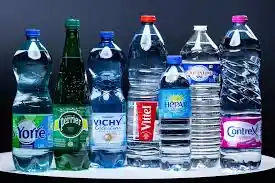
PARIS – Consumer advocacy group Foodwatch has filed new legal complaints against Nestlé Waters and Alma, accusing both companies of using unlawful methods to treat their bottled water.
The complaints, submitted on Wednesday in Paris, allege that the two corporations violated health regulations by employing illegal filtration processes on popular brands such as Perrier, Vittel, Hépar, Contrex, and Cristaline.
Foodwatch’s accusations come on the heels of a €2 million settlement Nestlé reached in September, which allowed the company to avoid further prosecution over its controversial water extraction activities in the northeastern French towns of Vittel and Contrexéville.
Nestlé, in that case, agreed to “repair the ecological damage” caused by its operations in the region. However, the latest allegations suggest that both Nestlé and Alma may have continued engaging in illegal water treatment practices, despite the previous settlement.
Unlawful Water Treatment
Foodwatch claims that Nestlé Waters and Alma have been using methods that violate French water safety standards.
Nestlé is accused of implementing ultraviolet (UV) disinfection and activated carbon filters in its bottled water production, while Alma allegedly used iron sulfate to reduce arsenic levels in its St-Yorre and Vichy Célestins products.
Furthermore, Alma is accused of injecting carbon dioxide into naturally sparkling Chateldon water, which Foodwatch says is a violation of regulations.
“We have material evidence, including orders from Alma and invoices for the purchase of iron sulfate, photos of CO2 cylinders, and internal email exchanges,” said Foodwatch’s lawyer, François Lafforgue.
He also criticized the settlement Nestlé made last September, stating that it allowed the company to “escape by simply paying” without facing meaningful consequences.
Lafforgue demanded immediate judicial action, calling for the appointment of an investigating judge to ensure that Nestlé and Alma are held accountable. “It’s time to end the impunity or impose exemplary sanctions,” he said.
Health Risks and Contaminants
In addition to the alleged illegal treatment methods, both companies face accusations of allowing hazardous “forever chemicals” to contaminate their bottled water.
Tests conducted by Foodwatch revealed the presence of coliform bacteria, E. coli, and enterococci in several brands, including Hépar, Vittel, Contrex, and Perrier.
The watchdog also raised concerns over transparency, pointing to a lack of oversight from French health authorities. Foodwatch asserts that despite knowledge of the violations, the government allowed the companies to continue using unlawful micro-filters.
They claim that agencies such as Anses, the French Agency for Food, Environmental and Occupational Health and Safety, failed to act on the matter, potentially putting public health at risk.
Government’s Role Questioned
Lafforgue further criticized the French government’s role, suggesting that officials were aware of the ongoing violations but chose to remain silent.
“We are determined to take this to the courts,” he stated, emphasizing Foodwatch’s commitment to pursuing justice despite previous attempts by Nestlé to offer financial settlements.
More than 16,000 individuals have signed a petition launched by Foodwatch, demanding transparency and accountability from both companies. The advocacy group has vowed to continue its fight for stricter regulations and oversight of water treatment practices in France.
Looking Forward
As public outcry grows and legal proceedings loom, the focus will be on how the French judiciary and health authorities respond to the allegations.
Foodwatch is pushing for a thorough investigation and stronger enforcement of health regulations to protect consumers from what it describes as dangerous practices in the bottled water industry.